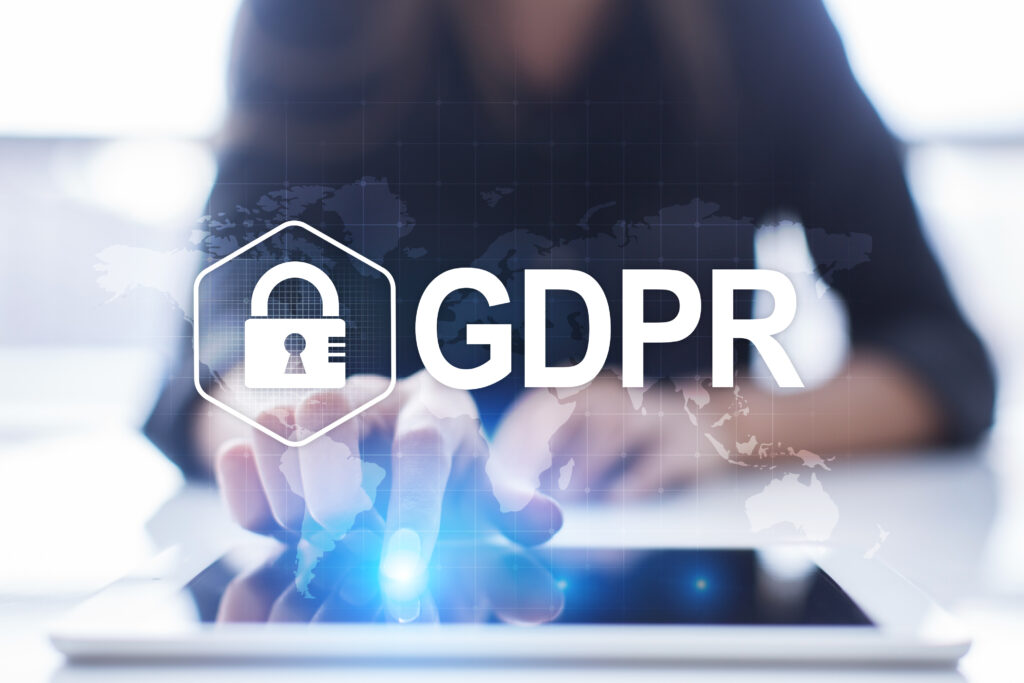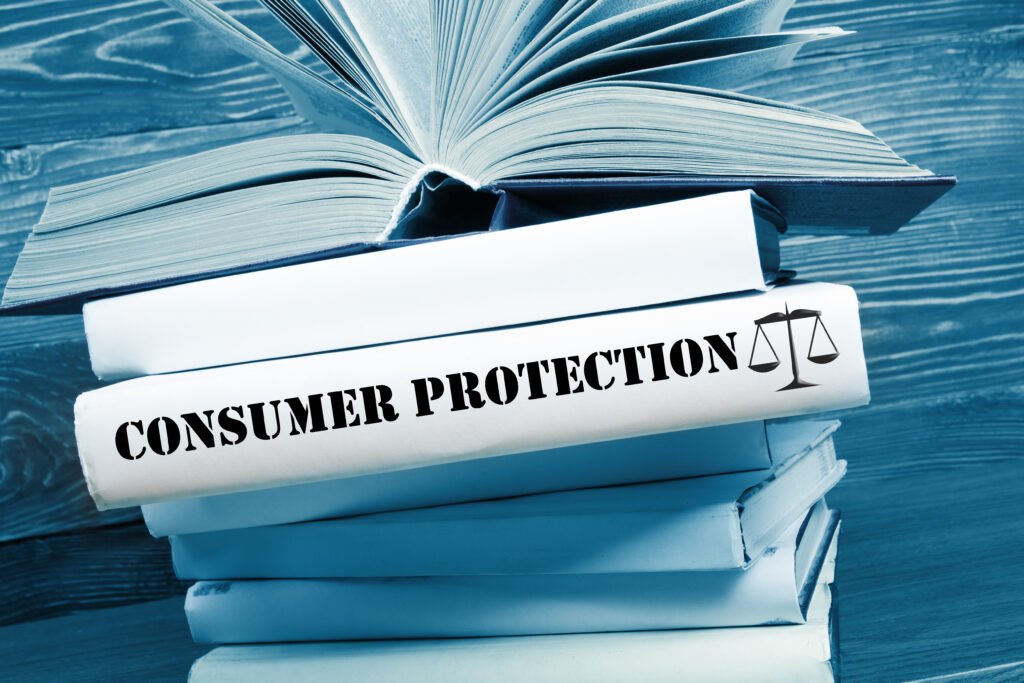In today’s digital age, data breaches have become a frighteningly common occurrence. For many, discovering that their personal information has been compromised is a moment of shock and anxiety.
If you’ve received a notification that your account has been affected by a data breach, you have to act swiftly to protect yourself from further harm.
At Kazerouni Law Group, we understand the distress and uncertainty that accompanies a data breach. We’re here to guide you through the steps you need to take and explain how our data breach lawyers can assist you in safeguarding your financial well-being and pursuing legal remedies.
Understanding the Impact of a Data Breach

A data breach occurs when unauthorized individuals gain access to sensitive information.
This can include:
- Personal Identification Information (PII): Names, addresses, Social Security numbers, and birthdates.
- Financial Information: Bank account details, credit card numbers, and transaction histories.
- Login Credentials: Usernames and passwords for online accounts.
- Medical Information: Health records and insurance details.
When your information is exposed, it can lead to significant problems, particularly financial vulnerabilities.
Financial Fraud and Identity Theft
The most immediate concern following a data breach is the risk of financial fraud and identity theft. Cybercriminals can use your stolen information to open new credit accounts. Fraudsters can apply for credit cards, loans, and other financial products in your name, leaving you with debt and a damaged credit score.
Your existing credit cards and bank accounts might be used for fraudulent transactions. If criminals compromised your login credentials, they can enter your bank accounts, investment portfolios, and other financial assets.
Damaged Credit Score
Identity theft can wreak havoc on your credit score. Multiple unauthorized credit applications and missed payments on fraudulent accounts can result in a lower credit rating, making it harder for you to secure loans, mortgages, or even employment in some cases.
Emotional Distress
Beyond the financial implications, data breaches can cause significant emotional distress. The constant worry about potential financial loss, the time and effort required to resolve issues, and the violation of your personal privacy can take a substantial toll on your mental health.
Immediate Steps to Take After a Data Breach
After a data breach, take immediate action to mitigate the damage.
Here are the steps you should follow:
- Confirm the Breach: Verify that the breach notification you received is legitimate. Scammers sometimes send fake notifications to trick you into divulging more information.
- Change Your Passwords: Update passwords for any affected accounts, and consider using a password manager to create strong, unique passwords for each account.
- Enable Two-Factor Authentication (2FA): Enhance your account security by enabling 2FA wherever possible. This adds an extra layer of protection by requiring a second form of verification in addition to your password.
- Monitor Your Accounts: Regularly check your bank and credit card statements for any unauthorized transactions. Report any suspicious activity immediately.
- Place Fraud Alerts: Contact one of the major credit bureaus (Equifax, Experian, or TransUnion) to place a fraud alert on your credit report. This makes it harder for identity thieves to open new accounts in your name.
- Freeze Your Credit: Consider freezing your credit report to prevent new credit accounts from being opened in your name without your consent. This is a more secure option than a fraud alert.
- File a Police Report: If someone stole your identity, filing a police report can help resolve disputes with creditors and credit reporting agencies.
- Notify the FTC: Report the theft to the Federal Trade Commission (FTC) through IdentityTheft.gov, which provides resources for recovery.
Understanding Your Rights Under Data Protection Laws
Data protection laws safeguard your personal information and ensure that organizations handle it responsibly. After a data breach, these laws protect and grant you rights. Here’s an overview of some of the key data protection laws:
General Data Protection Regulation (GDPR)

The GDPR is a comprehensive data protection law that applies to all organizations operating within the European Union (EU) and to those outside the EU that offer goods or services to EU residents. It focuses on giving individuals control over their personal data.
Key protections and rights Under GDPR are:
- Right to Access: You have the right to request access to the personal data an organization holds about you.
- Right to Rectification: If your data is inaccurate or incomplete, you can request corrections.
- Right to Erasure (Right to Be Forgotten): You can request the deletion of your data under certain circumstances, such as if the data is no longer necessary for the purposes it was collected.
- Right to Data Portability: You can request the transfer of your data to another organization in a structured, commonly used format.
- Right to Object: You can object to the processing of your personal data for specific reasons, such as direct marketing.
- Breach Notification: Organizations must notify you without undue delay if a data breach might result in a high risk to your rights and freedoms.
California Consumer Privacy Act (CCPA)
The CCPA enhances privacy rights and consumer protection for residents of California. It grants Californians greater control over how their personal information is collected, used, and shared.
Key protections and rights under CCPA:
- Right to Know: You can request information about the categories and specific pieces of personal data a business has collected about you, as well as the purposes for which it was collected.
- Right to Delete: You can request the deletion of personal information that a business has collected from you, subject to certain exceptions.
- Right to Opt-Out: You can opt out of the sale of your personal information to third parties.
- Right to Non-Discrimination: Businesses cannot discriminate against you for exercising your CCPA rights, such as by denying services or charging different prices.
- Breach Notification: Businesses must inform you if your unencrypted personal information was subject to unauthorized access and exfiltration, theft, or disclosure.
Health Insurance Portability and Accountability Act (HIPAA)
HIPAA is a federal law in the United States that sets national standards for the protection of sensitive patient health information. It applies to healthcare providers, health plans, and healthcare clearinghouses.
Key protections and rights Under HIPAA include:
- Right to Access: You can request access to your health records and other personal health information held by covered entities.
- Right to Amendment: If you believe your health information is incorrect or incomplete, you can request amendments.
- Right to an Accounting of Disclosures: You can request a report on when and why your health information has been shared.
- Right to Request Restrictions: You can request restrictions on certain uses and disclosures of your health information.
- Breach Notification: Covered entities must notify you if there is a breach of your unsecured protected health information that poses a significant risk of financial, reputational, or other harm.
How These Laws Protect You
These laws ensure that organizations are transparent about how they collect, use, and share your personal information. This allows you to make informed decisions about your data. You can access, correct, delete, and transfer your personal data, giving you greater control over your information.
Organizations are required to implement robust security measures to protect your data and are held accountable for any breaches. They must notify you promptly if criminals compromised your data, allowing you to take swift action to mitigate potential harm.
If anyone violates your rights under these laws, you may seek legal recourse. This can include filing complaints with regulatory bodies or pursuing legal action to recover damages. These laws ensure that you are informed and equipped to take the necessary steps to protect yourself.
A consumer protection lawyer can help you navigate the complexities of these laws and pursue the compensation and remedies you deserve.
Potential Compensation in Data Breach Cases

Data breaches can cause significant harm, from financial losses to emotional distress. If a data breach compromised your personal information, you may recover compensation.
Understanding the types of compensation available can help you navigate this challenging situation.
Financial Losses
- Direct Financial Losses: Reimbursement for unauthorized charges, stolen funds, and other direct financial losses resulting from the breach.
- Credit Monitoring Costs: Compensation for expenses related to credit monitoring services to detect and prevent further fraud.
Identity Theft and Fraud-Related Costs
- Costs of Addressing Identity Theft: Expenses incurred in resolving identity theft issues, such as legal fees, the cost of identity theft protection services, and other related expenses.
- Credit Freezing Fees: Costs associated with placing and lifting credit freezes on your credit reports.
Emotional Distress and Inconvenience
- Emotional Distress: Compensation for the psychological impact and stress caused by the breach.
- Time and Effort: Reimbursement for the time and effort spent dealing with the aftermath of the breach, such as contacting financial institutions, monitoring accounts, and disputing fraudulent charges.
Punitive Damages
In some cases, courts may award punitive damages to punish the negligent party and deter future misconduct.
Statutory Damages
Some data protection laws, such as the California Consumer Privacy Act (CCPA), allow for statutory damages. This means you can receive a set amount of compensation per violation without having to prove actual damages.
How a Consumer Protection Lawyer Can Help in the Event of a Data Breach
A consumer protection lawyer from Kazerouni Law Group can make a significant difference in dealing with a data breach. Our experienced attorneys can assist you in several ways:
Assessing the Impact

We can help you determine the extent of the damage caused by the data breach. This involves reviewing your financial statements, credit reports, and other relevant documents to identify fraudulent activities and assess the overall impact on your financial health.
Advising on Legal Remedies
Depending on the circumstances of the breach, you might be entitled to compensation. We can advise you on the best course of action, whether it’s filing a lawsuit against the company responsible for the breach, pursuing a class action lawsuit, or seeking a settlement.
Representing Your Interests
Our lawyers will represent you in negotiations with the breached company and their insurers. We aim to secure the maximum compensation for your losses, including reimbursement for fraudulent charges, credit monitoring services, and damages for emotional distress.
Preventing Further Damage
We can guide you on additional steps to protect your identity and financial assets, such as how to effectively use identity theft protection services and the legal actions you can take to prevent further harm.
Contact Kazerouni Law Group for Help With a Data Breach Case
A data breach can leave you feeling vulnerable and anxious, but you don’t have to face the aftermath alone. By taking immediate steps to protect yourself and seeking the assistance of a skilled consumer protection lawyer, you can mitigate the damage and hold responsible parties accountable.
At Kazerouni Law Group, our consumer protection lawyers are committed to helping you navigate the complexities of data breach incidents and ensuring your rights are protected. Contact us today for your free consultation and let us help you regain control of your financial security and peace of mind.